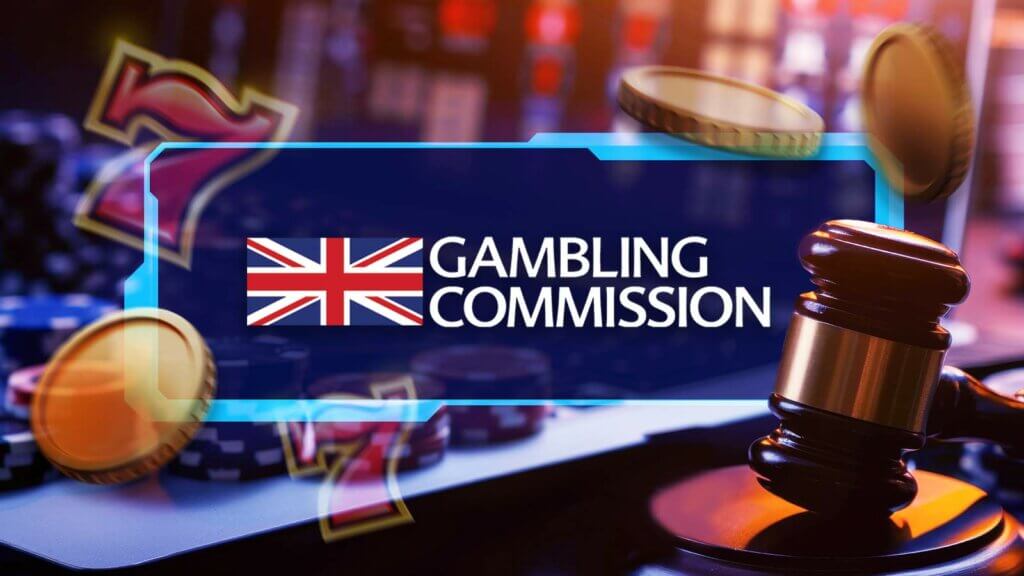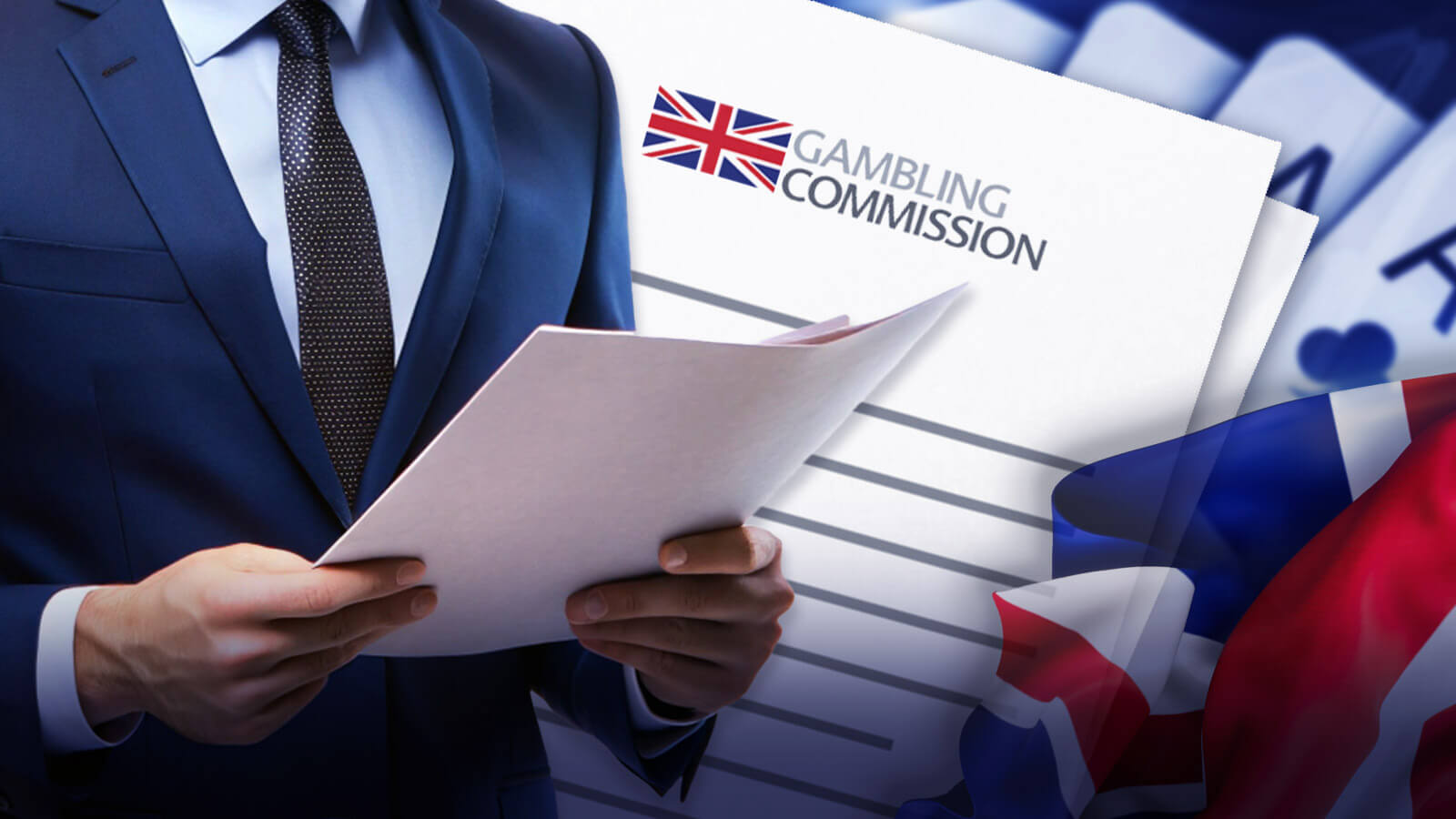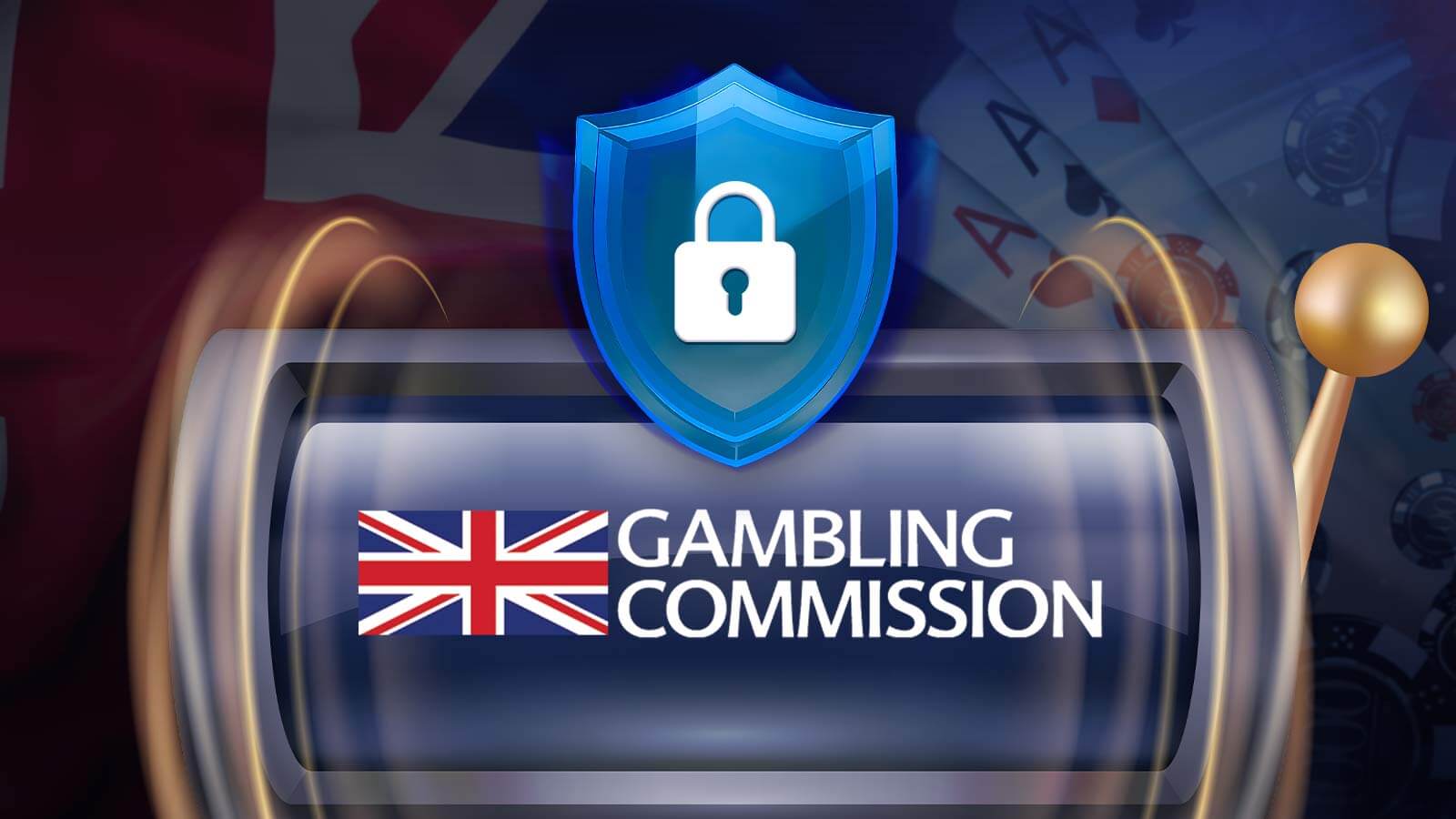UKGC: Complete Guide for Punters
KingCasinoBonus receives money from casino operators every time someone clicks on our links, influencing product placement. The compensation we receive does not impact our recommendation, advice, reviews and analysis in any way. Our content will always remain objective, independent, straightforward, and free from bias.

Understanding the UKGC regulations is the best trait that a British punter can have. If you fully understand what the UK Gambling Commission does to the gambling industry and how it impacts your gameplay, you will become a professional, responsible gambler.
Our casino specialists explain everything necessary about the UKGC, which regulates British online casinos. Learn about their history, responsibilities, rules, and regulatory authority.
On this page
A Quick Guide on the UK’s Gambling Authority

The United Kingdom Gambling Commission is a department of the British government. As a public entity with decision-making authority, it primarily oversees and regulates traditional, online, and charitable gambling.
What are the activities that fall under its governance? See the list below:
- Brick-and-mortar casinos;
- Lotteries;
- Arcades;
- Betting shops;
- Bingo events;
- Remote casino play;
- Remote lotteries and bingo;
- Slot machines.
The Aims of the Commission
As they state themselves, the main two goals they have are keeping UK gambling spotless from criminal activity and protecting vulnerable clients and gamblers. They can collaborate with law enforcement to solve the issue if they observe a lead on illegal gambling.
Interesting fact: The UKGC became responsible for the National Lottery only in 2013, even though it has existed in one form or another since 2005.
Particular aims in detail
- Keeping gambling crime-free
Gambling has to be conducted in fair and open ways to protect vulnerable citizens, especially children, according to The Gambling Act of 2005 (the current legislation). Standard procedures aim to fight illegalities and discrepancies displayed by casinos and local lotteries.
Can you solve such things by yourself?
There are different ways of solving a dispute yourself, between you as a punter and online casinos. Usually, these are handled by independent authorities called Alternate Dispute Resolutions (ADR). Please consider learning our advice from our solving disputes guide for a detailed guide on these matters.
- Giving away licenses
All types of gambling and gaming operators in the UK, whether they have a brick-and-mortar spot or a remote, offshore business with a section of their site just for Brits, are given their operating licence from the United Kingdom Gambling Commission.
They are allowed to suspend or completely retract the permit of functioning based on the regulations that are in place right now. Under the same perspective, they are requested by local governments to advise on gambling-related events.
- Regulating remote casinos
Suppose a gambling or betting business wants to promote themselves in the following territories. In that case, they need the seal of approval from the UKGC:
- England;
- Wales;
- Scotland.
Each business has to complete a long process to accomplish this goal. It starts with applying on the UKGC’s site, submitting the necessary proofs, and keeping up the regulations at a high standard. The Commission performs random checks on licensed sites. This is true for locally-based or foreign-based corporations.
Interesting fact: Other international markets base their regulations on other authorities, but none are as strict as the UK. The Malta Gaming Association and the Gibraltar Betting and Gaming Association are notable names.
- Constant monitoring for operators
After a licence is granted, the Commission is allowed, encouraged, and known for coming back and checking several casinos’ activity sectors to see if they still follow the standards defined in the law. Most checks are concerned with financial dealings.
What are the consequences of further examinations?
The Commission can issue suggestions for each business individually to make amends and improve their affairs. This is part of the soft consequences. On the more rigid flipside, other conditions can be imposed on top of the original ones, mainly to avoid mismanagement.
What happens when the rules are breached?
Even licensed casinos must follow the code of practice. Otherwise, it can be suspended or revoked. The leading solutions are represented by taking actions like:
- Getting fined;
- Levying a license;
- Suspending the website from operating;
- Revoking the licence.
This can happen if a casino cancels your bonus unlawfully.
How are these things checked?
Inside the UKGC is a special section called the Intelligence Department that observes operators’ illegal activities. Their reports are sent to the senior management, who decides further action according to the regulations in force.
So, there are two steps:
- The preliminary reports of the Intelligence Department;
- The final decisions of the senior management, upon the results of step 1, are enforced.
Interesting fact: All the companies that have been fined or otherwise sanctioned by the Commission are listed on its official website.
- Keeping a satisfactory level of transparency
Gambling businesses contain information that needs to be transferred regularly to the UKGC. Their money entries and cashouts and how they are handled via banking procedures are vital and can’t be avoided.
On the customer side of the business, casinos need to inform their users about the nature of their promotions (including rules and abusive behaviour) and the privacy policy.
Please note! Even though gambling is thoroughly regulated, businesses in the industry also have to follow UK residents’ general customer rights. Satisfactory customer support quickly powers the leading solutions. The main ways to contact a casino are:
- Writing an email to their support team;
- Talking to an agent directly via live chat (an internal messenger app);
- Talking via their help phone;
- Funding charities.
In 2020, the UK Gambling Commission required corporations to donate to charity. A casino corporation should pay gambling-related organizations that educate the public, mitigate gaming dangers, protect underage minors, and treat gambling addiction.
For consideration: In London and the UK, the Young Gamers and Gamblers Education Trust educates, empowers, and protects children from gambling and significant wins. Successful gambling risk and harm awareness campaigns prompted UK giant Microgaming to donate to them to meet UKGC criteria.
Practical Results of the UKGC

This section will show our readers some of the most notable moves of the UKGC, which we have witnessed in our almost 6 years of experience in the UK gambling industry. With such examples, we hope you understand the role of the Commission more clearly.
- Fining casino for not enforcing anti-money laundering rules. Each online casino must set up strict and dense rules against money laundering. KYC (Know Your Customer) might be familiar to you, showing the source of the funds you wager getting cashouts under a specific schedule with a cap per transaction.
- Fines for misleading marketing attitudes. Each promotion hosted by a casino has to be attached to a set of rules, clearly posted and explained satisfactorily. Hence, the user knows what he/she is getting themselves into. This transparency level must be maintained in any advertising: newsletters via email or SMS, banners on other sites, TV ads, etc.
- Fines for not protecting customers (self-exclusions, disallowing problem gamblers). Casinos hold a social responsibility that is not to be ignored. Thus, no matter if they are or are not qualified in a risk category, any punter has to have the right to self-exclude. Also, problem gamblers should be disallowed to enter a new casino after they ditch another for their protection.
- Finding lotteries for fraudulent activities. There have been cases of big lottery corporations where an employee conspired with a customer to get a ticket containing the winning numbers. Of course, this instance breaches the licence terms regarding fair play and equal opportunities. The police corroborated the Commission’s reports, and the situation ended with a fine of £3,000,000.
Interesting fact: The counterfeit ticket was qualified as a “jackpot” entry, resulting in a cash prize of £2,500,000. Of course, after the investigation, it was not paid in full to the phoney winner.
The Role of Local Authorities in Such Issues
Local authorities follow the specifics of the Gambling Statement of Principles from the Gambling Policies (part of the Gambling Act). Depending on the demand and usage of slot machines and gambling/betting terminals, they must have their own localised approach.
The best combination of forces should contain the direct “on the street” observations and the general regulations of the UKGC.
Odds cases of the past
There have been 2 cases in the past where two major casino companies became insolvent. As expected, insolvency is a severe state that does not appear suddenly. This is why, in time, the UKGC has given even more attention to the financial dealings of casinos before them, highlighting money problems.
Interesting fact: The UKGC wants to base its new methods and directives upon legitimate user experience. That is why they periodically ask citizens for their opinions on several issues via questionnaires and other e-forms.
A small historical itinerary
In the table that follows, we comprise the biggest steps since 2005. We will update this mini-section in the future with any relevant data as we constantly keep an eye on the Commission’s updates, press releases, and related topics.
| 2005 | The Gambling Act was officially published and set up the powers of the Commission. |
| 2007 | The Commission started to work, taking over the acts of the Gaming Board. |
| 2013 | The National Lottery was integrated into the responsibilities of the UKGC. |
| 2020 | The Commission published detailed reports about three gambling operators. |
In 2014, another essential bill saw the light of day in the British Parliament. It was called the Gambling Licensing and Advertising Bill, and it added contexts and extra definitions for UK gambling, in-person or remote.
The following table gives some parallels in points of interest for a clearer perspective.
| 2005 | 2014 |
| Licences are required only for brick-and-mortar casinos or similar establishments. | All gambling businesses, offline and online, need a license from the UKGC under the same principles. |
| Ads can be run in the UK, even if the establishment has a licence from Gibraltar, Alderney, or the Isle of Man. | Ads can only be run from UKGC-approved businesses; otherwise, TV ad sponsorships and physical ads are prohibited. |
| Online sites accepted in the UK could have a licence from any international authority. | Online sites need to be checked by the Commission and have a stable or a transitional seal. |
| Taxes are applied by the territories that are licence-providing, by the legal statements of those respective territories. | Gambling businesses operating within the Kingdom territories must pay a 15% tax on their gross profits. |
Interesting fact: At the beginning of the past decade, the UK became a firm name in the international gambling scene, amounting to £2 billion over one year. Nowadays, the trends are steady in the billions.
Does taxation affect the big operators?
In short, no. Big companies have gross profits in the range of hundreds of millions. Instead, they would follow the regulations and apply their 15% levy rather than lose grip on one of the Western world’s largest markets. On top of that, some of the more prominent names are local brands, operating since the 20th century, William Hill and Paddy Power, for instance.
What happens if you want to access a site that does not allow UK players?
There are two options in this scenario. You will not be able to access the site at all, and instead of the site’s front page, you will see something like ‘Forbidden’ or ‘404 Page Not Found’. You can see the site’s pages, but you won’t be able to access the sign-up page.
Dispelling rumours of unfair odds
We have observed some articles and opinion editorials that have criticised the current taxing scheme. It might prompt smaller casinos or book-making enterprises to offer disadvantageous odds for their players. Although the risk is viable in theory, in practice, we have not seen a shift in these areas since 2014. Casinos adapt to the trends rapidly without putting you as a punter at a significant disadvantage.
Explaining Corporate Governance
The Commission has a responsibility of transparency towards the residents of the UK. They publish their directives annually, and the people on the leading boards and committees fulfil this. The Department of Digital, Culture, Media and Sport, a body that responds to and controls the UKGC, appoints the leading posts within the Gambling Commission.
If you visit the UKGC’s site, you can see the current in-seat commissionaires, The Chair, and the latest business plans.
What do these usually contain?
- Goals that need to be fulfilled/maintained;
- Financial data;
- Strategies applied.
Guarantees Provided by the UKGC

Even though we state these ideas constantly through our reviews, there are significant advantages to a casino that has been tested regularly and approved by the UKGC. This section will reiterate the main pluses you get, for your convenience.
Thus, a UKGC licence brings forth extra protection in the following sub-domains:
- Your security as a player
The Commission’s primary concern is keeping your data, finances, and mental health safe from risks and harms. This translates to anonymity and safety for your personal information, as well as your online traces.
Plus, casinos undergo various checks that test their platforms’ resistance and servers against cyber-attacks and other violations from bad online actors. You are welcomed in a place that does not share your data without your consent and does not allow it to leak to anonymous hackers.
- Your access to fair games and tournaments
The games you play at a UK-accepted casino are not rigged in favour of online casinos. Instead, they are regularly tested to ensure that the outcome is random and follows the statistical probability related to each game, respectively.
Also, each game category has an introductory text explaining to novel punters how it works and the winning odds. Some casinos we have reviewed make the rules available for each game they display, even if the total number amounts to thousands. This way, there should be no issue in how you conduct your sessions.
In the cases of digital errors or other glitches, each casino operates differently regarding your frozen bet/session. The answer lies within the terms and conditions.
- The status of your player funds
The UKGC allows each casino or betting place to choose one out of three scenarios to follow with player funds. All of them have common ground in that the funds the players deposit are held separately from the company’s funds. The highest protection level solidly ensures that an independent auditor holds the player fund account at a different bank.
How does this impact you?
If a business runs smoothly as usual, there is no need to stress over this aspect. But, in rare cases where a casino files for insolvency and, unfortunately, goes even further into being bankrupt, you can recuperate your funds, both the ones you had in your balance and your winnings.
What investments does the Commission make?
From their statements, we know that the UKGC is committed to the safety of players. Besides the tasks they carry that we have already mentioned, they also invest in quite a large number of plans and strategies.
We resume them in the list here:
- Crafting and constantly updating a code of practice that puts the gambler at the centre of the casino’s activity;
- Encouraging a vast number of enterprises to educate people, especially youngsters, on gambling;
- Prevention and sustainable treatment for gambling-related harm;
- Raising standards for safe gambling.
Interesting fact: You can look up any gambling operator and if they have a licence or have ever had one from the UK, in the Public Register Research on the Gambling Commission website.
How To Contact the United Kingdom Gambling Commission
Lastly, we leave you with the Commission’s contact information if you need to delve further into an investigation, topic, or complaint. Here are the handles:
- Official website: http://www.gamblingcommission.gov.uk/home.aspx;
- Physical address: Gambling Commission, Victoria Square House, Victoria Square, Birmingham, B24B;
- Email address: [email protected];
- Phone number: 0121 230 6666.
Practice Responsible Gambling at All Times
As a gambler in the UK, we trust that we have addressed all your worries. We hope that you have found our page informative and that you have obtained some new knowledge.
If you are well-informed and take precautions, you may choose more reliable casinos and have more secure gaming experiences. Be a responsible gambler!
Reviewed sources for this page
- Gambling Commission – wikipedia.org
- Gambling Act 2005 – legislation.gov.uk
- Gambling Commission – Home
- Young Gamers & Gamblers Education Trust
- Corporate governance – The United Kingdom Gambling Commission
- The Department of Digital, Culture, Media and Sport – gov.UK
- Business plan 2019 – 2020 – The United Kingdom Gambling Commission
- Gambling (Licensing and Advertising) Act 2014 – legislation.gov.uk